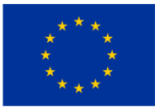Differentiation in ASEAN, ECOWAS and MERCOSUR: A comparative analysis
Differentiation is a key instrument to tackle heterogeneity and development disparities while promotes flexibility, and preserves state sovereignty.
Performed activity
By-invitation online session
CIDOB in the framework of the EU IDEA research project
The purpose of this webinar is to discuss the main conclusions of the policy document published within the framework of the EU IDEA project in which various modes of differentiation in regions outside of Europe are analysed. From the perspective of comparative regionalism, the paper examines how the practice of differentiation facilitates flexibility and accommodates diversity in regional cooperation processes in Asia, Africa and Latin America. Examining the Association of Southeast Asian Nations (ASEAN), the Economic Community of West African States (ECOWAS) and the Southern Common Market (Southern Common Market - MERCOSUR). Drawing lessons from practices in these organizations, this policy paper argues that differentiation, including multi-speed, concentric circles, multiple sub-organisations and à la carte, is a “normal”, even essential element of regional cooperation processes. Differentiation is a key instrument to tackle heterogeneity and development disparities while promotes flexibility, and preserves state sovereignty.

The project has received funding from the European Union’s Horizon 2020 research and innovation programme under grant agreement No 822622. This event reflects only the view of the author(s) and the European Commission is not responsible for any use that may be made of the information it contains.